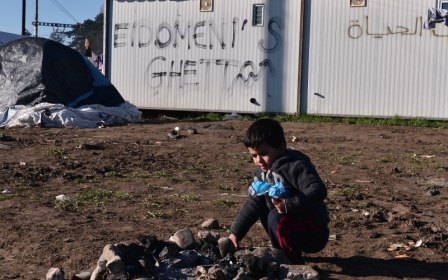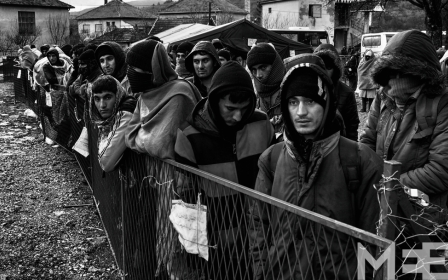Bulgaria bans the niqab
Bulgaria banned face-covering Islamic veils in public on Friday, joining a small number of EU countries as debate rages across Europe about religious freedoms.
Parliament approved the law banning "wearing in public clothing that partially or completely covers the face," referring to the burqa or the more common niqab.
Infringements carry fines of 200 leva ($114), rising to 1,500 leva for repeated offences.
Bulgaria's mostly centuries-old Muslim community, dating back to conversions during Ottoman times, makes up about 13 percent of the population, mostly in the Turkish minority.
Muslim women in Bulgaria have generally worn just a simple scarf to cover their hair, but recently there has been a small rise in the number of women wearing the niqab among ultra-conservative Muslim communities of the Roma minority.
The often impoverished and marginalised Roma make up just under 10 percent of Bulgaria's population, about a third of whom are Muslim. Several Bulgarian towns had already banned the niqab at the local level.
The legislation was approved in spite of opposition from the MDL Turkish minority party, which accused the other parties of "sowing religious intolerance".
Rights group Amnesty International has strongly criticised the ban.
"This law is part of a disturbing trend of intolerance, xenophobia and racism in Bulgaria," the group's Europe director, John Dalhuisen, said in a statement.
France and Belgium have both banned the burqa and niqab, and Switzerland's lower house this week narrowly approved a draft bill on a nationwide ban. In August, Germany's interior minister came out in favour of a partial ban.
This summer France was embroiled in a row over bans on the burkini, a full-body Islamic swimsuit, in resorts along the Riviera.
A poll published earlier this month showed Britons to be strongly in favour of a burqa ban.
Bulgaria, which borders Turkey and Greece, has been a gateway for Syrian refugees into Europe.
The Eastern European country has come under criticism for what human rights groups describe as abuse of refugees.
"Bulgarian law enforcement officials summarily return asylum seekers and migrants to Turkey, often after stealing their belongings and subjecting them to violence," Human Rights Watch said in a report earlier this year.
Bulgaria's Orthodox Church warned against the influx of Muslim refugees into the country last year, describing the migrant crisis as an "invasion".
Middle East Eye propose une couverture et une analyse indépendantes et incomparables du Moyen-Orient, de l’Afrique du Nord et d’autres régions du monde. Pour en savoir plus sur la reprise de ce contenu et les frais qui s’appliquent, veuillez remplir ce formulaire [en anglais]. Pour en savoir plus sur MEE, cliquez ici [en anglais].




